
Elvin Richard Bishop is an American blues and rock music singer, guitarist, bandleader, and songwriter. An original member of the Paul Butterfield Blues Band, he was inducted into the Rock and Roll Hall of Fame as a member of that group in 2015 and the Blues Hall of Fame in his own right in 2016.

James Henry Cotton was an American blues harmonica player, singer and songwriter, who performed and recorded with many fellow blues artists and with his own band. He also played drums early in his career.

Charles Douglas Musselwhite is an American blues harmonica player and bandleader, one who came to prominence, along with Mike Bloomfield, Paul Butterfield, and Elvin Bishop, as a pivotal figure in helping to revive the Chicago Blues movement of the 1960s. He has often been identified as a "white bluesman".
The Tulsa sound is a popular musical style that originated in Tulsa, Oklahoma, during the second half of the twentieth century. It is a mix of blues, blues rock, country, rock and roll and swamp pop sounds of the late 1950s and early 1960s. Artists considered to have pioneered the Tulsa sound include J. J. Cale, Leon Russell, Roger Tillison and Elvin Bishop. After 1980, Gus Hardin (country), and Jeff Carson (country) released roots music albums. Although Dwight Twilley is from Tulsa, his power pop style bears no resemblance to the Tulsa sound; likewise, David Gates' most recognized songs were mostly in the soft rock genre.
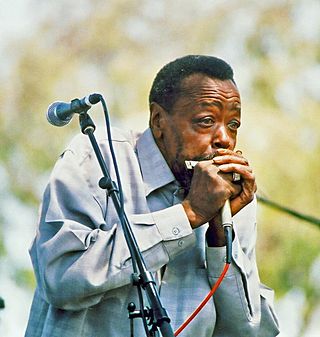
Carey Bell Harrington was an American blues musician who played harmonica in the Chicago blues style. Bell played harmonica and bass guitar for other blues musicians from the late 1950s to the early 1970s before embarking on a solo career. Besides his own albums, he recorded as an accompanist or duo artist with Earl Hooker, Robert Nighthawk, Lowell Fulson, Eddie Taylor, Louisiana Red and Jimmy Dawkins and was a frequent partner with his son, the guitarist Lurrie Bell. Blues Revue called Bell "one of Chicago's finest harpists." The Chicago Tribune said Bell was "a terrific talent in the tradition of Sonny Boy Williamson and Little Walter." In 2023, he was inducted in the Blues Hall of Fame.

The Paul Butterfield Blues Band is the self-titled debut album by the American blues rock band of the same name, released in 1965 on Elektra Records. It peaked at number 123 on the Billboard albums chart. In 2012, the album was ranked number 453 on Rolling Stone magazine's list of "the 500 Greatest Albums of All Time". It is also ranked at number 11 on Down Beat magazine's list of the top 50 blues albums.

East-West is the second album by the American blues rock band the Butterfield Blues Band, released in 1966 on the Elektra label. It peaked at #65 on the Billboard pop albums chart, and is regarded as highly influential by rock and blues music historians.

Phillip Jackson, best known as Norton Buffalo, was an American singer-songwriter, country and blues harmonica player, record producer, bandleader and recording artist who was a versatile proponent of the harmonica, including chromatic and diatonic.

Roy Rogers is an American blues rock slide guitarist and record producer. He was named after the singing cowboy. Rogers plays a variety of guitar styles related to the Delta blues, but is most often recognized for his virtuoso slide work.
Michael David Hinton was an American guitarist, residing in the San Francisco Bay Area. During his career, he played with numerous bands, including Norton Buffalo and the Knockouts, High Noon, Merl Saunders & the Rainforest Band, to name a few. He appeared on several albums with the Rainforest Band and other Merl Saunders projects, including It's In The Air, Fiesta Amazonica, Still Having Fun, Merl Saunders With His Funky Friends - Live, and Still Groovin' .

Big Fun is an album by the American blues musician Elvin Bishop, released by the Alligator label in 1988.
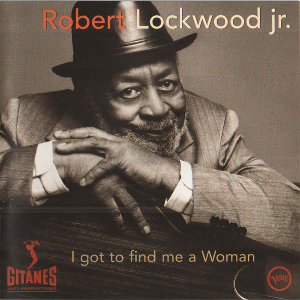
I Got to Find Me a Woman is an album by the American blues musician Robert Lockwood Jr., released in 1998. Lockwood was in his 80s when he recorded it.
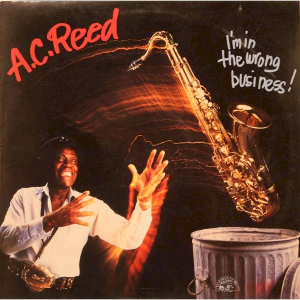
I'm in the Wrong Business! is an album by the American musician A.C. Reed, released in 1987. Backed by the Spark Plugs, Reed promoted the album with a North American tour. It sold around 50,000 copies in its first two years of release.
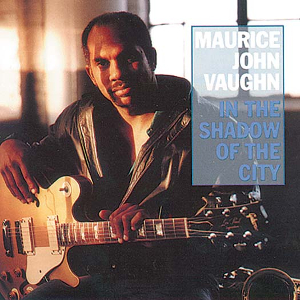
In the Shadow of the City is an album by the American musician Maurice John Vaughn, released in 1993. Vaughn supported the album with a North American tour. "(Everything I Do) Got to Be Funky", which was a minor, regional radio hit, appears on the soundtrack to Major League II.

Ace in the Hole is an album by the American musician Elvin Bishop, released in 1995. It was his third album for Alligator Records. Bishop promoted the album by touring with B. B. King. Ace in the Hole was nominated for a Bammie Award.
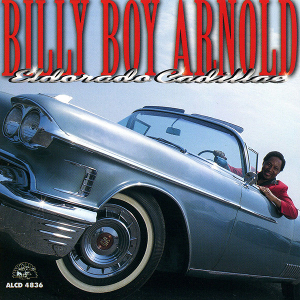
Eldorado Cadillac is an album by the American musician Billy Boy Arnold, released in 1995. It was the second album of his 1990s comeback. Arnold considered his two Alligator Records albums to be the best of his career. The album won a National Association of Independent Record Distributors award for best blues album.

No Foolin'! is an album by the American musician Katie Webster, released in 1991. It was her third album for Alligator Records, and her final studio album before her stroke. Webster supported the album with a North American tour.
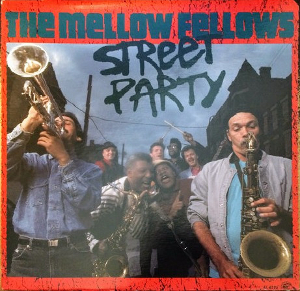
Street Party is an album by the American band the Mellow Fellows, released in 1990. It was the band's first album since the March 1990 death of frontman Big Twist. The Mellow Fellows supported the album with a North American tour. Street Party was a success on radio stations throughout Illinois.
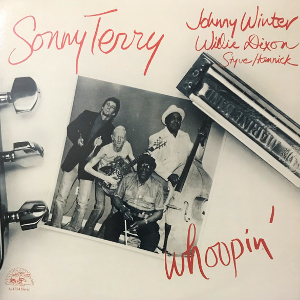
Whoopin' is an album by the American musician Sonny Terry, released in 1984. He is credited with Johnny Winter and Willie Dixon. The album was also released as I Think I Got the Blues. It was the first of Winter's two 1984 Alligator Records albums.

Roadhouse Rules is an album by the American musician Lonnie Brooks, released in 1996. It was his seventh album for Alligator Records. The album peaked at No. 15 on the Billboard Blues Albums chart. Brooks supported it with a North American tour.


















